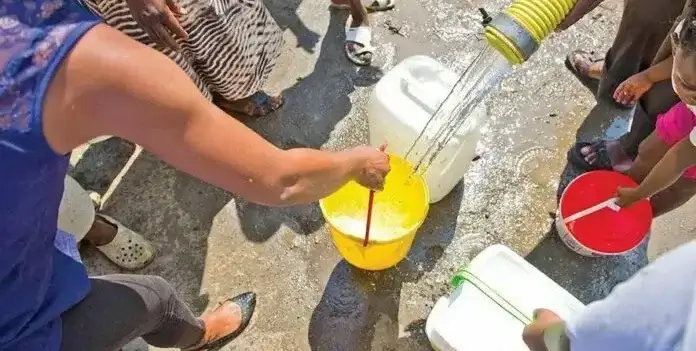The City of Tshwane has set the wheels in motion towards formalising partnerships that will contribute towards addressing its water and sanitation-related challenges.
The national Department of Water and Sanitation is among the strategic partners that the city has approached, not only to be involved as a regulator.
The department will also collaborate on various issues and leverage the department’s technical and financial resources to jointly address the municipality’s other challenges, including the Hennops River pollution, Rooiwal wastewater treatment works, and inadequate human resources.
Memorandum of understanding
The City of Tshwane and the department have signed a memorandum of understanding to collaborate on various strategic areas, including infrastructure planning and development, water resource planning and infrastructure solutions, and capacity building for municipal officials.
The agreement was signed on Monday by Tshwane city manager, Johann Mettler, and deputy director-general for water and sanitation services, Dr Risimati Mathye, at Tshwane House, the city’s headquarters.
The parties said discussions are at an advanced stage to finalise a flagship engineering candidature development programme, which will see the secondment of candidate engineers to the City of Tshwane, as well as professional engineers who will be contracted to the city for a three-year period.
A team of engineers has undergone training under the department.
In addition, the department will offer free mentorship through its database of mentors to the candidate engineers to assist them in obtaining professional registration with the Engineering Council of South Africa (ECSA).
Once implemented successfully, the programme will assist the city in complying with the new ECSA identification of engineering work regulations.
Collaborative effort
Mathye said collaboration between the two entities is significant, particularly on the water and sanitation side, to fulfil its role as a regulator of the water and sanitation sectors.
“Addressing our major water challenges requires a collaborative effort between the city and key water stakeholders, and the DWS [Department of Water and Sanitation] is one of those key players.
“We have been facing significant water challenges, which have been affecting some of our residents for a longer period, and some of these challenges can be linked to ageing infrastructure and maintenance challenges at some of our water treatment plants.
“We are pleased by the will and zeal that have been shown by the city in ensuring collaborative efforts and allowing us to work together in different spheres of government to ensure efficient services to the residents of Tshwane,” said Mathye.
“It has always been our intention to work with local governments to capacitate them where we can to achieve Sustainable Development Goals, particularly goal six, to realise clean water and decent sanitation provision to communities.”
Areas of collaboration
Other key areas of collaboration that the memorandum of understanding will focus on include:
• Water resource planning and infrastructure solutions in line with the city’s climate action plan;
• Infrastructure planning and development;
• Collaboration on water and sanitation-related programmes;
• Training and capacity building, including secondment of staff between the parties;
• Education and awareness campaigns;
• Knowledge-sharing;
• Benchmarking of programmes like Green Drop, Blue Drop, and No Drop;
• Joint enforcement programmes for water pollution prevention;
• Exploration of alternative water and sanitation technologies with DWS and its entities;
• Key bulk infrastructure in line with the metropolitan spatial development framework and regionalised spatial development framework; and
• Any other additional area that the parties may agree to collaborate on in future.
The memorandum of understanding reinforces the ideal of the Intergovernmental Relations Act, No. 13 of 2005, which implores a concerted effort by government in all spheres to work together and to integrate as far as possible their actions in the provision of services, the alleviation of poverty, and the development of society. – SAnews.gov.za



